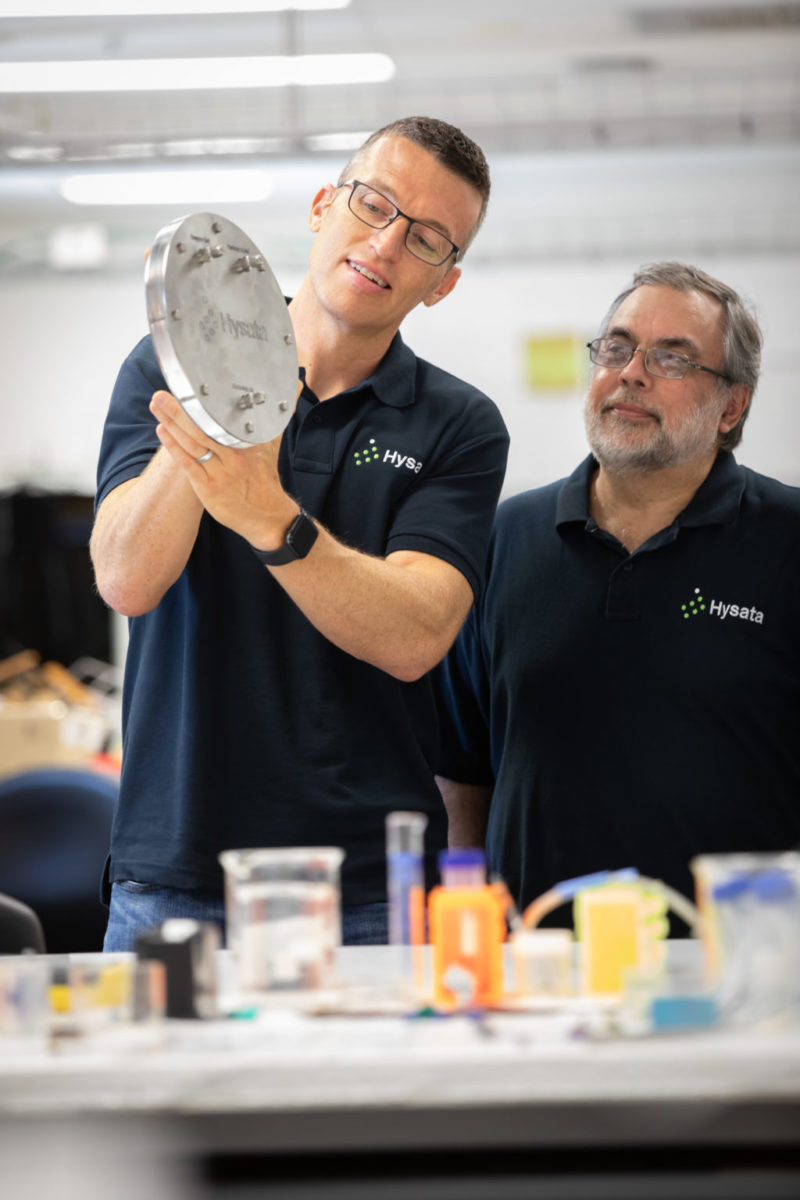Based in Illawarra on Australia's New South Wales south coast, hydrogen technology company Hysata has closed its Series A funding round oversubscribed at AUD 42.5 million ($29.4 million).
The company launched in 2021 claiming its capillary-fed electrolysis technology will deliver a “giant leap” in performance and cost compared to incumbent technologies, promising to deliver hydrogen for less than $2 per kilogram by the “mid 2020s.”
This promise is based on the efficiency of its system, which Hysata says operates at 95%, a massive step up from the current hydrogen electrolyser efficiencies which generally sit at 75% or less.

Alongside its capillary-fed electrolysis, Hysata is also promising easy equipment production, telling pv magazine Australia previously that it believes it can reach gigawatt-scale hydrogen production by the middle of the decade thanks to its simple and mass manufacturable design.
Popular content
The successful funding round, the company said, will help it grow its Illawarra-based team and set it on its path to gigawatt-scale manufacturing.

Kiko Ventures’ founding partner, Robert Trezona, described Hysata’s technology as “game changing.”
“Having assessed scores of electrolyser technologies in my 20 years in cleantech, Hysata’s technology stands out as a true breakthrough. The company has redefined the core cell architecture for alkaline electrolysis, producing a practical and scalable solution with game-changing efficiency. Hysata has the potential to be a globally significant company in the hydrogen economy and we look forward to supporting its growth, especially here in Europe,” Trezona said.
“Over the last 12-18 months, Hysata has been interacting with dozens of major customers globally,” Hysata CEO Paul Barrett added. “The impact our efficiency and system simplicity delivers to customers’ project economics truly moves the needle. We look forward to continuing to work with our shareholders and customers to bring this much needed technology to market as soon as possible.”
This content is protected by copyright and may not be reused. If you want to cooperate with us and would like to reuse some of our content, please contact: editors@pv-magazine.com.



By submitting this form you agree to pv magazine using your data for the purposes of publishing your comment.
Your personal data will only be disclosed or otherwise transmitted to third parties for the purposes of spam filtering or if this is necessary for technical maintenance of the website. Any other transfer to third parties will not take place unless this is justified on the basis of applicable data protection regulations or if pv magazine is legally obliged to do so.
You may revoke this consent at any time with effect for the future, in which case your personal data will be deleted immediately. Otherwise, your data will be deleted if pv magazine has processed your request or the purpose of data storage is fulfilled.
Further information on data privacy can be found in our Data Protection Policy.